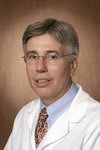
Jesse Yates helped train many fellows in the early days of our division.
Mr. Jesse Thomas Yates, a former research technician who was part of the Division of Nephrology in its early days – and who helped train over 50 fellows – passed away on June 8, 2020, at 89 years of age.
Mr. Yates served in the U.S. Army in a medical unit during the Korean War. He earned his bachelor’s degree in biochemistry from the historic Fisk University in Nashville, Tennessee. He returned to his hometown of Lexington, Kentucky and was employed at the University of Kentucky before being recruited to Washington University School of Medicine in St. Louis by Dr. Neal Bricker, the first director of our division in 1965-1966. Yates became the head research technician in Dr. Bricker’s lab and remained in that position under Dr. Saulo Klahr, who succeeded Dr. Bricker as chief of nephrology, until Yates retired in 1995.
Yates was involved in major developments in the study of kidney function in health and disease. He taught and supervised many fellows in techniques for cutting-edge research. Dr. Thomas Pohlman, a nephrologist at St. Luke’s Hospital in St. Louis, was one of those fellows.

Former WashU Nephrology fellow Thomas Pohlman was Jesse’s friend and his physician.
“Jesse was a good man, teacher, a patient and a friend,” says Pohlman, who later became one of Yates’ physicians. “He was very proud of his work with Dr. Bricker and his many years, association, and friends at WashU.
“Jesse was fondly called ‘Professor’ by many of us well after we completed our training. With a frequent smile, quick wit, intelligence and quiet tenacity, Jesse became friends with many who were blessed to meet him.”
Yates was preceded in death by the love of his life, his wife Marlyne, his parents, Charles Thomas and Kathleen Yates, and his son Ernest W. Yates. He is survived by his son, Tommy A. and wife, Diane D. Yates, his grandson, Trevor A. Yates, and his step-granddaughter, DiRon Jefferson-Hunt.
Yates donated his body to science; a memorial service will be held when it is safe to gather after the COVID-19 pandemic. Read his full obituary, written by Pohlman, here.
“Though physically gone, Mr. Jesse Yates will live on in all of us whom he touched,” says Pohlman. “He left us, and the world, better by his presence.”